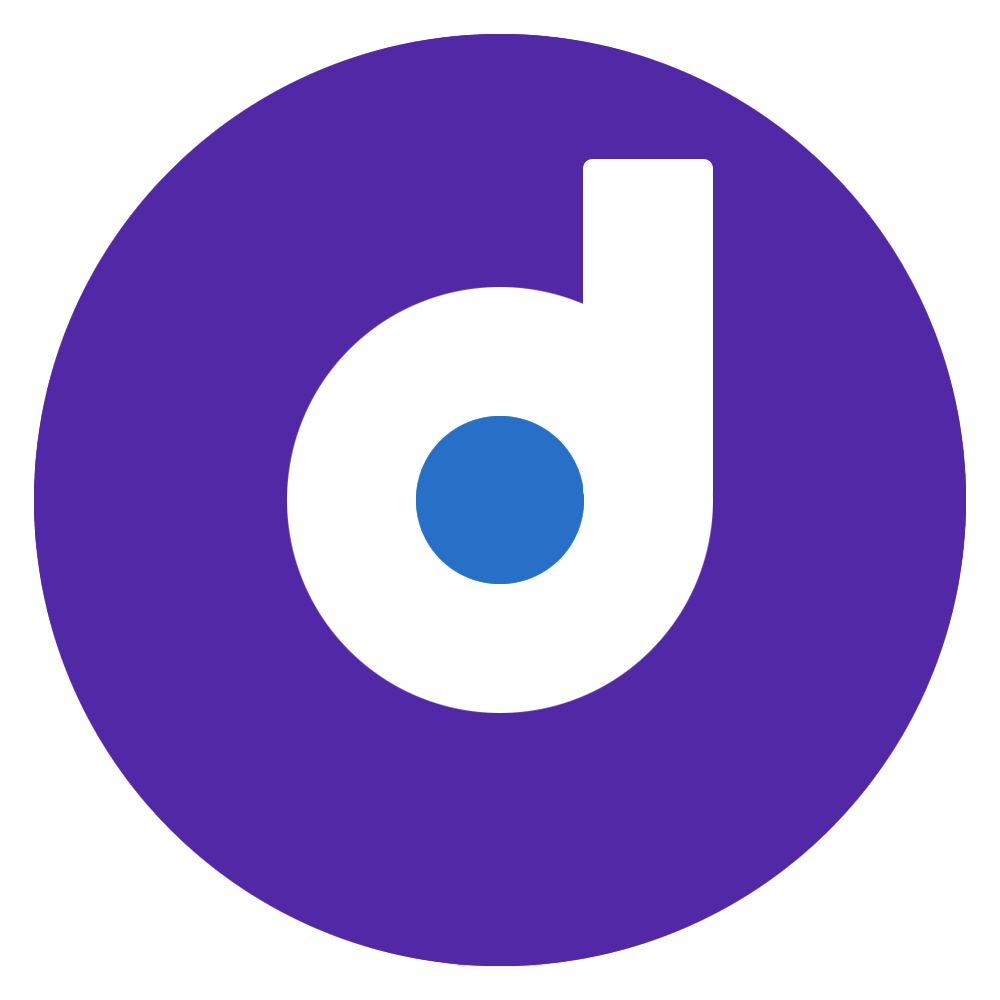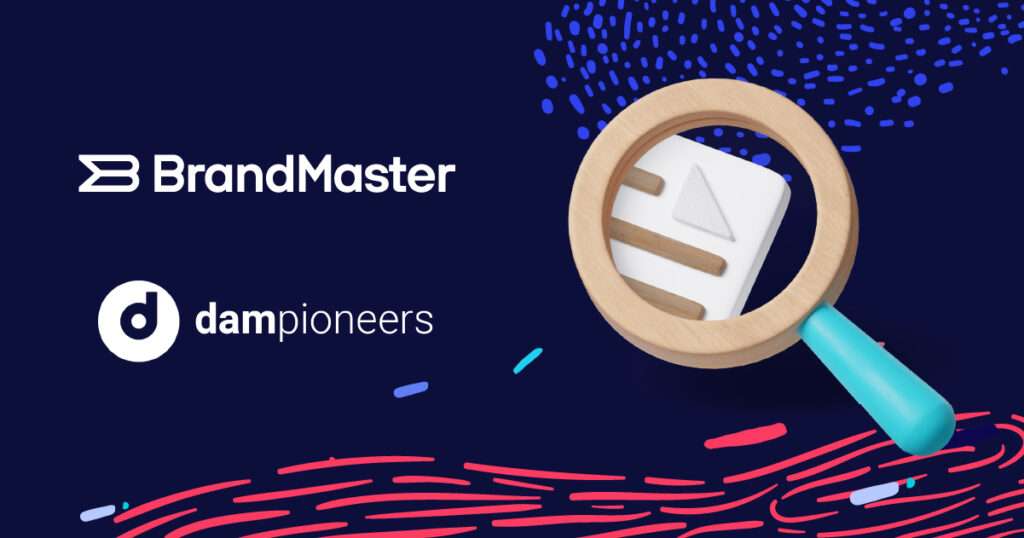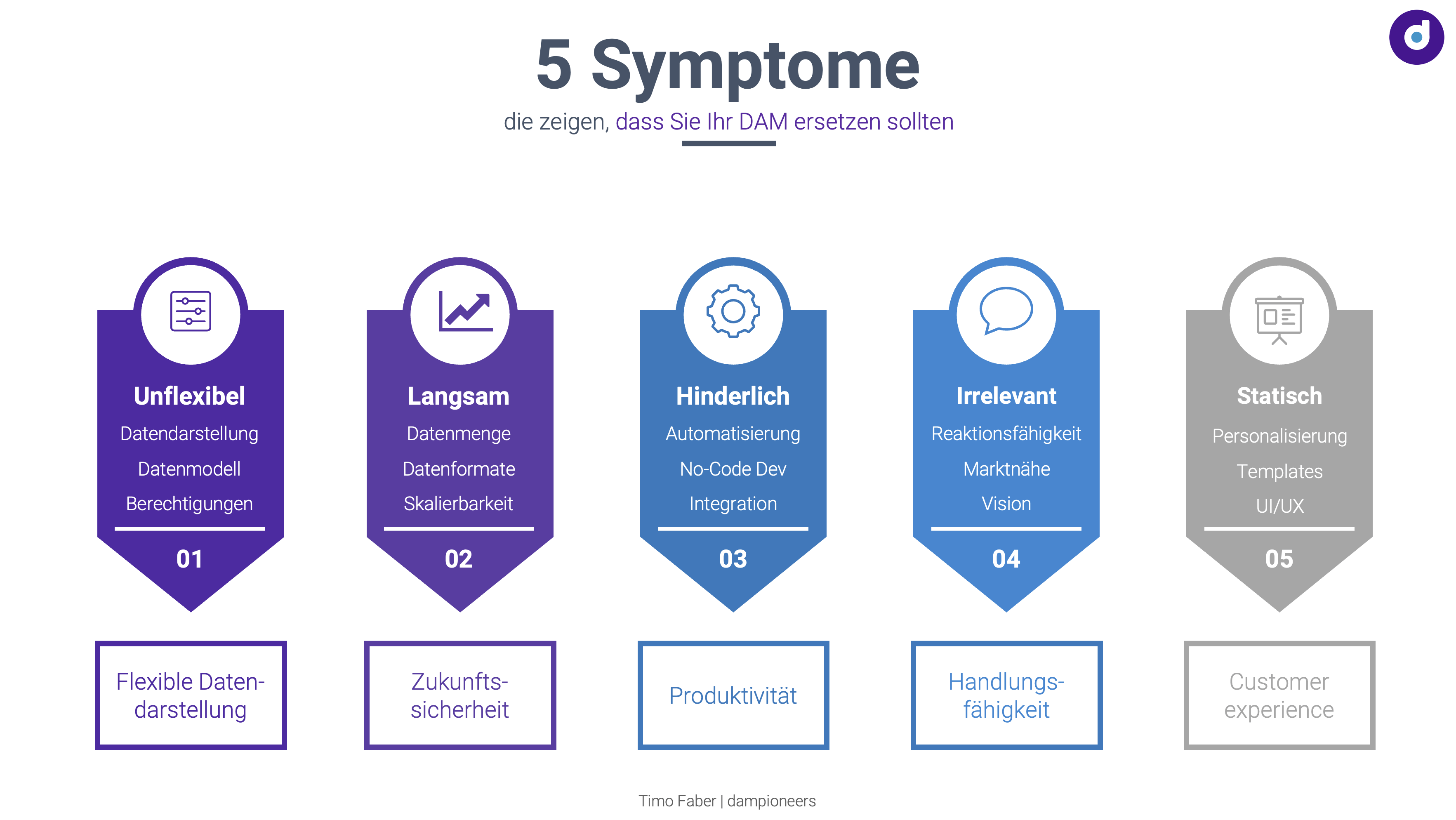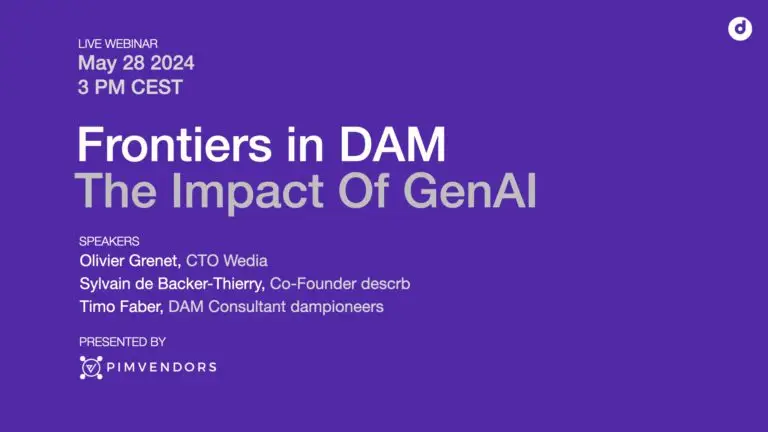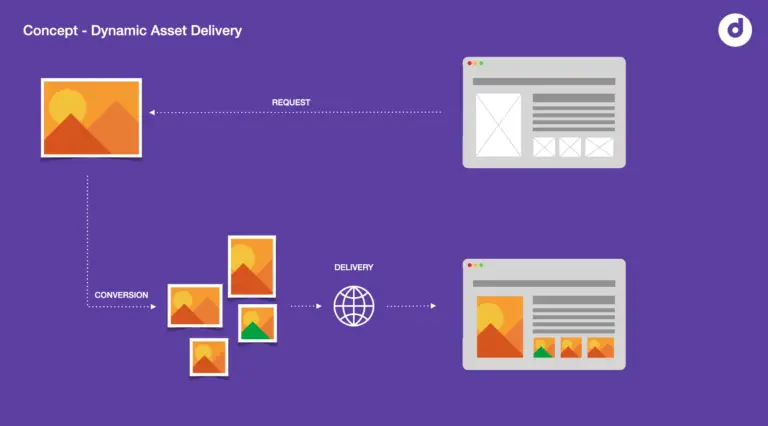When is the time right for a change?
Most companies have at some point found an image database, media asset management or some other way to manage the images, videos, documents and other files needed for marketing and make them accessible to the relevant stakeholders.
The COVID crisis in particular has exposed the digital maturity of companies and put processes to the test.
Problems often show up, such as:
- Images/assets are not found (e.g. low quality of metadata or poor search functions).
- User experience / user friendliness no longer up to date
- Lack of acceptance of the solution due to errors in the project (e.g. change management)
- The solution has reached a technological dead end due to excessive customizing
These problems often lead to a failure to achieve the goals that were pursued with the introduction of the solution. In this webinar, we will show you how to identify problem areas and what are clear signs that make a change to a modern solution essential.
What do modern DAM and brand asset management solutions offer?
Modern digital asset management solutions now go beyond core functionality and have evolved into brand asset management solutions, i.e. they no longer include the mere management of multimedia files but help you ensure that your marketing assets are optimally used and adapted by all stakeholders.
Typical features of modern digital asset management and brand asset management solutions include:
- Modern user experience, also usable on mobile
- A content layer that allows you to enrich your assets with information and put them in the spotlight
Support for all common formats for images, video and documents, including preview and conversion options - Single-source-of-truth: centralized asset delivery for all channels
- AI-based keywording to improve metadata and search results
- Provision of design templates for local customization of ads
Sophisticated statistics and monitoring of asset usage and performance - High integration capabilities (e.g., connectors, API-first, REST)
- Extensibility through platform strategy
Using BrandMaster (now Papirfly) as an example, we will show you what concrete benefits companies derive from such functions.
How can a successful migration be achieved?
Depending on the scope of the existing solution and its integration into your existing MarTech landscape, a migration can be an extensive project in which, for example, the following points must be taken into account:
- Cleanup of the data
- Streamlining and adaptation of existing structures
- Transfer of files
- Migration of metadata
- Change management
